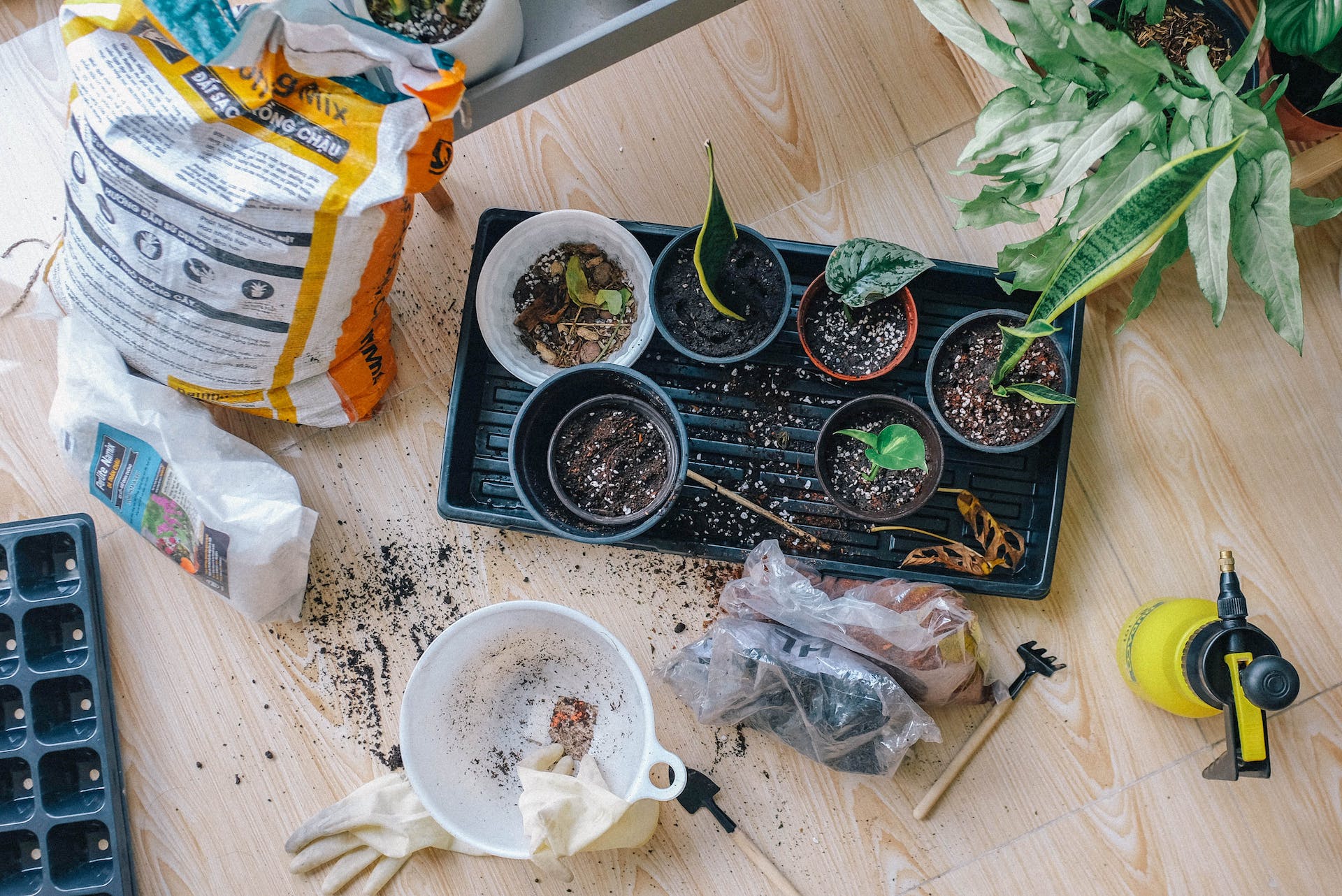Organic home gardening: growing healthier produce

A move towards healthier, fresher, and more sustainable food sources is capturing the attention of many. You may have heard of organic farming, which is both an art and science that prioritizes the health of both the soil and the food it produces. What if we told you that you can bring this technique right into your own backyard? With a little time, effort, and knowledge, your garden can grow its bounty of fresh, organic vegetables. This article will guide you through everything you need to know about organic home gardening, from preparing your soil to reaping your crops.
The Fundamental of Organic Gardening: Understanding Your Soil
Any experienced gardener will tell you that good soil is at the heart of a successful garden. Organic gardening is no different. The quality of your soil will determine how well your plants grow. It is the base of your garden and the provider of vital nutrients to your plants.
En parallèle : Handmade pottery: personalizing your home with ceramics
A healthy soil is rich in organic matter, which nourishes plants and supports beneficial microbial life. It’s also well-draining, meaning it doesn’t hold too much or too little water. Achieving this balance requires time and patience.
Start by testing your soil. Most garden centers sell soil testing kits, or you could send a sample to a certified laboratory. The test will show the levels of nutrients in your soil and its pH, helping you understand what amendments your soil might need.
Cela peut vous intéresser : Mid-century modern: a timeless design trend
Choosing the Right Plants for Your Garden
Once you understand your soil, it’s time to decide which vegetables you will grow. The choice of plants will affect your garden’s success and your food table’s abundance.
Consider what kind of vegetables your household enjoys. Do you love fresh salads in the summer? Consider growing lettuce, spinach, and tomatoes. If you enjoy hearty stews in the winter, potatoes, carrots, and onions might be a good choice.
Also, consider the suitability of each plant to your local climate and soil conditions. Some plants prefer cool weather, while others need a lot of sun. Remember to rotate your crops each season. This practice helps prevent soil depletion and breaks the cycle of pests and diseases.
The Importance of Composting in Organic Gardening
Compost is like gold in the world of organic gardening. It’s a natural, nutrient-rich soil conditioner that improves the fertility and structure of your soil.
Making your compost is relatively simple. Collect kitchen scraps like vegetable peelings, coffee grounds, and eggshells. Add yard waste like grass clippings, leaves, and small branches. Avoid meat, dairy, and diseased plants, as they can attract pests or spread diseases.
The composting process takes several months. Turn your compost pile every few weeks to speed up the decomposition process and ensure all materials break down evenly. Once it’s ready, work it into your garden soil. Your plants will greatly benefit from this nutrient-rich addition.
Natural Pest and Weed Control
Organic gardening also means saying no to synthetic pesticides and herbicides. However, this doesn’t mean letting pests and weeds take over your garden. There are several natural methods you can use to control these unwelcome visitors.
For pest control, consider introducing beneficial insects like ladybugs and praying mantises. They are natural predators to many common garden pests. For weed control, mulching is an effective method. It also helps retain soil moisture and regulate soil temperature.
Harvesting and Storing Your Organic Vegetables
The time and effort you’ve put into your garden will finally pay off when it’s time to harvest your fresh, organic vegetables. Each vegetable has an optimal time for harvesting for the best flavor and nutrient content.
After harvesting, proper storage is key to maintaining the freshness and nutritional quality of your vegetables. Some vegetables like potatoes and onions should be stored in a cool, dark place, while others like tomatoes and cucumbers do better at room temperature.
In conclusion, organic home gardening is a rewarding journey that can provide you and your family with fresh, nutritious vegetables. With a little planning, preparation, and care, you can cultivate a thriving, productive garden right in your backyard. Remember, organic gardening is not just about growing food. It’s about nurturing the soil and the environment, contributing to a healthier and more sustainable planet.
Planning Your Growing Season and Crop Rotation
Knowing the ins and outs of your growing season is important in the world of organic gardening. Planning ahead will ensure a successful vegetable garden. The timing of planting and harvesting is crucial for each type of vegetable. Knowing your local frost dates can help you determine the best times to start seeds indoors, transplant seedlings outdoors, and plan your succession plantings.
Your growing season begins with preparing your garden beds. Depending on your climate and what you’re planting, this could start as early as winter or early spring. The use of cover crops in the off-season can add nutrients to the soil and prevent weeds from taking hold. Remember that soil preparation is equally as important as the planting itself.
Next comes the planting. Timing is important for this stage. Some seeds can be started indoors while it’s still cold outside, while others need to be sown directly into the ground. It’s also useful to know if your chosen plants prefer partial shade or full sun.
Lastly, consider employing the practice of crop rotation in your organic garden. This involves changing the location of your vegetables each year. This way, pests that prefer a specific crop will not overwinter in the soil and re-infest the same plants the following year. Crop rotation also helps in maintaining soil fertility as different plants have varied nutrient requirements and can help balance the use of soil nutrients over time.
Implementing Natural Fertilizers and Soil Amendments
For an organic garden to thrive, the use of natural fertilizers and soil amendments is crucial. These provide your plants with the nutrients they need without the use of synthetic chemicals.
Compost is an excellent natural fertilizer that you can make from kitchen scraps and yard waste. Another option is the use of green manures or cover crops. These are plants that are grown and then plowed back into the soil to improve soil fertility and organic matter.
Soil amendments like bone meal, fish emulsion, and worm castings can also be used to correct specific nutrient deficiencies. Remember to have a soil test done before applying any amendments, as too much of certain nutrients can be as detrimental to your plants as too little.
Apart from these, also consider the use of beneficial insects and other organisms in your garden. Earthworms, for instance, help improve soil structure and nutrient content by their natural process of decomposition. Encouraging these organisms in your garden will pave the way for a thriving, productive organic garden.
In Conclusion…
Organic home gardening is an endeavor that requires dedication, knowledge, and a bit of elbow grease. However, the rewards are plentiful. The satisfaction of growing your food, the joy of harvesting a basket full of vibrant, fresh vegetables, and the peace of mind knowing that you and your family are eating healthy, nutritious produce are well worth the effort.
Remember, in organic gardening, it’s not just about the produce. It’s about nurturing the soil and preserving the environment, ensuring that future generations can enjoy the same benefits. Keep in mind that organic matter is at the heart of your garden, and fostering a rich, healthy soil is key. So, go ahead and embark on your organic gardening journey. Your future self, and the planet, will thank you.
